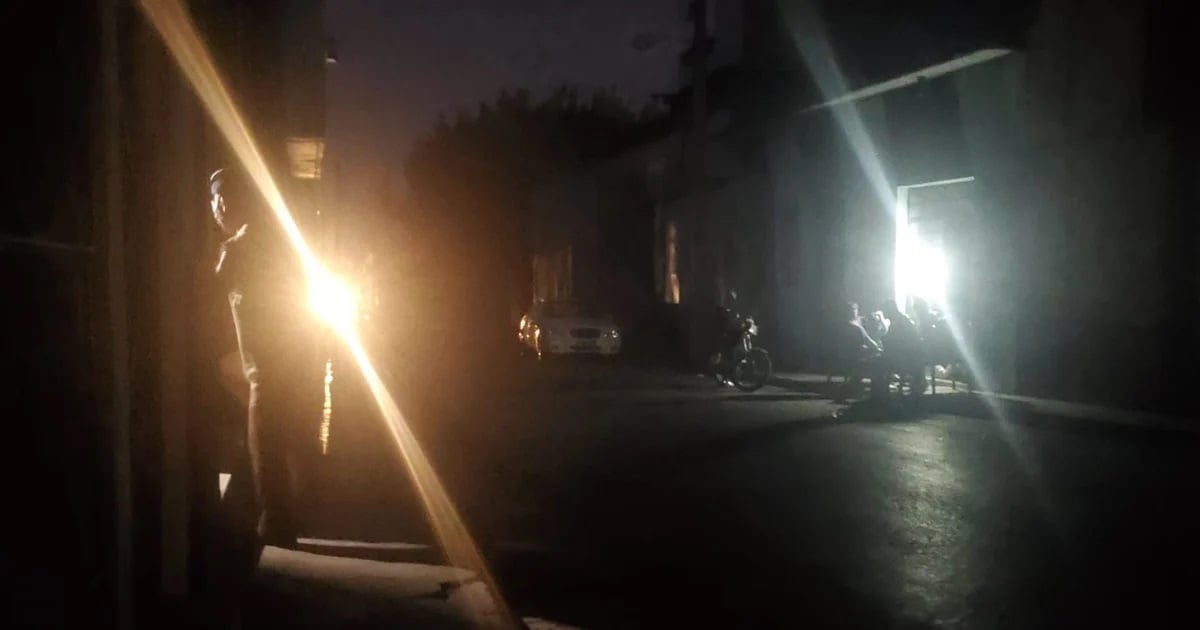The Electric Company of Santiago de Cuba has announced an increase in blackouts but denies the possibility of 24-hour service cuts, as suggested on social media by independent journalist Yosmany Mayeta.
On Wednesday, Mayeta shared alarming statements from a source in Santiago de Cuba warning about a potential total electrical shutdown in the region. The state-owned company labeled this information as false but confirmed that blackouts will indeed increase.
Worsening Energy Situation in Santiago de Cuba
The company warned that the situation of the National Electro-Energetic System (SEN) has worsened, which will cause some circuits in the province to experience blackouts outside of scheduled times or extended outages longer than anticipated. This indirectly corroborates Mayeta’s information.
Government Denies Imminent Total Blackout
The state-owned company dismissed as "rumors" the reports circulating on social media about a supposed imminent total blackout, despite some areas already experiencing outages lasting more than 16 hours.
"The news circulating on social media about the possibility of a total blackout is false. Stay informed through our official channels and institutional profiles, where we will provide all pertinent information regarding the situation in the province," stated their official communication.
Factors Aggravating the Crisis: Breakdowns and Fuel Shortages
Minister of Energy and Mines, Vicente de la O Levy, offered statements to the media explaining the main causes of the SEN’s deterioration. He noted that the crisis is due to a combination of factors, including the breakdown of several generating units and a critical fuel deficit.
Regarding the affected units, De la O Levy detailed that the Mariel 8 thermoelectric plant in Artemisa is scheduled to rejoin the system on Thursday. Meanwhile, the Diez de Octubre 5 plant in Camagüey is expected to be operational in the next four to five days after repairing leaks in its boiler.
However, the situation is more complicated at the Carlos Manuel de Céspedes thermoelectric plant in Cienfuegos, which attempted to rejoin the system the previous day without success. In Mayabeque, the Habana 1 unit is expected to return to the SEN on Friday after completing the resin repair of damaged pipes.
Fuel Crisis: A Significant Issue
The minister also emphasized that the primary cause of the disruptions is the fuel shortage, affecting not only electricity generation but also other sectors of the Cuban economy.
He informed that fuel shipments are waiting to be unloaded at Cuban ports. This operation will take place between Wednesday and Thursday, but it involves a significant financial sacrifice for the country, as high amounts must be paid weekly for these supplies.
Once the fuel is unloaded, the distribution process to the power generators and service stations will begin.
De la O Levy explained that Cuba consumes 3,000 tons of hydrocarbons daily. A ship with a capacity of 20,000 tons of fuel can supply the country for about a week, meaning that two to three vessels are required every seven days to meet the needs for diesel, gasoline, liquefied gas, fuel oil, and jet fuel.
Efforts Announced but Crisis Unresolved
The minister referred to the joint effort by workers in the electrical sector and CUPET, the state-owned Cuban oil company, to ensure the efficient distribution of the limited available fuel in the shortest possible time.
However, these "efforts by workers" do not resolve the country's energy crisis nor change the harsh reality Cubans face daily. The public's discontent and criticism are not directed at the workers but at the government's poor management.
The current conditions of the SEN are increasingly critical. Authorities demonstrate day after day that they lack the competence and resources to restore the proper functioning of the electrical service and manage the fuel shortage, which are key factors for the country's economy.
Understanding the Energy Crisis in Cuba
To provide further clarity on the energy crisis in Cuba, here are some common questions and answers.
Why are blackouts increasing in Santiago de Cuba?
The increase in blackouts is due to the worsening state of the National Electro-Energetic System (SEN), including breakdowns of generating units and a critical fuel deficit.
Is there a total blackout expected in Santiago de Cuba?
The state-owned electric company denies the possibility of a total blackout, labeling such reports as rumors despite prolonged outages in some areas.
What are the main causes of the energy crisis in Cuba?
The energy crisis is mainly caused by the breakdown of several generating units and a critical shortage of fuel, which affects not just electricity generation but also other sectors of the economy.
